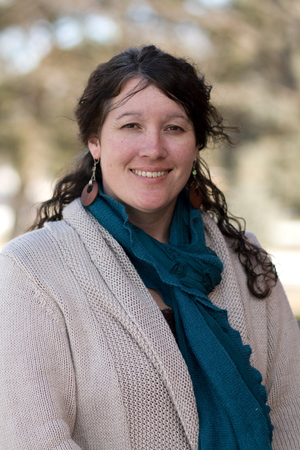Getting to Know: Rangeland

College Relations publishes a monthly series of news articles, features and Q&A interviews highlighting various departments on campus in an effort to assist the faculty and staff in gaining an increased awareness about and understanding of each other’s roles and responsibilities.
The November Q&A is with Dr. Teresa Frink, Associate Professor and Chair of the Applied Sciences department.
Q: What career areas do range majors generally pursue?
Most range students pursue range or soil conservation positions with federal agencies such as the Natural Resources Conservation Service, the U.S. Forest Service, or the Bureau of Land Management. Some students will focus on research or management positions with the state management agencies (Nebraska Game and Parks Commission, Nebraska Department of Environmental Quality, Natural Resource Districts), non-governmental organizations (Pheasants Forever, The Nature Conservancy), private consulting firms, or federal agencies (U.S. Fish and Wildlife Service). Some of our students are fortunate to be self-employed as farmers and ranchers, others work with farmers and ranchers in ag lending (banks, Farm Service Agency) or by providing services to them (seed companies, chemical companies, co-ops, animal nutritionists, animal feed companies). We also have students who have sought opportunities as ag education teachers, and others who have continued on with their education by pursuing advanced degrees.
Q: Could you tell us about the types of trips and labs that supplement classroom work?
Students are required to take a variety of labs in the range core including soils, habitat inventory and analysis, and range plant ID. Depending on a student’s option they may take labs for courses such as Mammalogy, Ornithology, Equine Communications I and II, and General Ecology. For some options, students may be required to take field tours such as those for Ruminant Production, Farm and Ranch Management, and Equine Industry Applied Field Study.
Q: How does the new facility assist the faculty and students?
The arena is being used continuously used for the equine courses. The laboratories in the range building are being used daily for courses and the labs listed above.
- What minors do you recommend?
Many students will pursue minors which complement their majors, including wildlife management, agribusiness, outdoor recreation, law enforcement, and the water resources management.
Q: What role does the Society for Range Management (SRM) play in providing professional development opportunities for students and faculty?
Students participating in the ag club have opportunities to annually travel to the state and international SRM meetings. It is at these meetings that students network with professionals in the field, participate in collegiate competitions, socialize with range students from other programs, and visit other range ecosystems.
Category: Campus News
